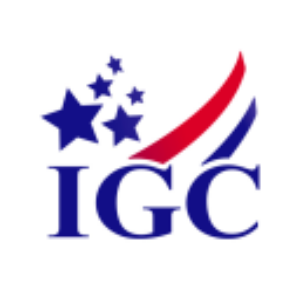Phase 1 Clinical Trial Data Indicate IGC’s THC-based Investigational New Drug May Reduce Symptoms of Dementia in Alzheimer’s Patients
India Globalization Capital, Inc. (IGC) announced preliminary positive findings from its Phase 1 clinical trial for IGC-AD1, a THC-based drug aimed at treating Alzheimer’s symptoms. The trial highlighted significant decreases in anxiety (50-60%) and agitation (35-60%) among participants. The results were shared in a Clinical/Statistical Report filed with the FDA. IGC plans to expand the study with a placebo-controlled trial pending FDA approval. Alzheimer's affects 50 million globally, with no approved medications for symptom relief, underscoring the potential impact of IGC-AD1.
- Preliminary trial results show a 50-60% reduction in anxiety and a 35-60% reduction in agitation among Alzheimer’s patients.
- IGC plans to pursue a placebo-controlled, multi-site trial to expand on initial findings.
- The company has filed for additional patents to protect its intellectual property regarding IGC-AD1.
- The Phase 1 trial results are preliminary and do not guarantee future success.
- IGC-AD1 has not yet received regulatory approval as a medication.
Insights
Analyzing...
Alzheimer’s disease impacts about 50 million people worldwide and about 5.5 million individuals in the
To the best of our knowledge, this is the first human clinical trial combining low doses of THC with another molecule to treat symptoms of dementia in Alzheimer’s patients. THC is a naturally occurring cannabinoid produced by the cannabis plant. It is known for being a psychoactive substance that can impact mental processes in a positive or negative way depending on dosage. THC is biphasic, meaning that low and high doses of the substance may affect mental and physiological processes in substantially different ways. Our trial is based on low or microdosing, which is hypothesized to potentially have a promising effect on Alzheimer’s patients.
As previously disclosed the recently closed trial was approved to proceed by the
Based solely on the data collected over the course of the Phase 1 trial, we saw evidence of clinical improvements in anxiety, depression, and agitation. On the anxiety and depression scales, we documented a decrease of approximately
As this was a Phase 1 trial, data collected related to neuropathic symptoms are preliminary in nature and are not a guarantee of future positive results. Nevertheless, IGC is encouraged by these initial promising and exciting results, as the potential to improve the quality of life of Alzheimer’s patients and their caregivers could be significant if similar results are repeated in future trials with larger patient pools. We are in the process of using the results from this Phase 1 study to design and subsequently pursue, based on FDA approval, a placebo-controlled, multi-site trial with a significantly expanded patient population to further test the efficacy of IGC-AD1 on agitation, anxiety, and depression in Alzheimer’s patients. The details of a clinical trial process in general are documented in IGC’s annual report.
IGC-AD1 is an investigational new drug that has not been approved as a medication by any regulatory body in any country. Although the Phase 1 trial has been completed, and certain data has been collected, IGC-AD1’s safety and efficacy need to be further established through trials on larger and more diverse groups of Alzheimer’s patients.
About IGC:
www.igcinc.us, www.igcpharma.com.
Forward-Looking Statements:
This press release contains forward-looking statements within the meaning of Section 21E of the Securities Exchange Act of 1934. These forward-looking statements are based largely on IGC’s expectations and are subject to several risks and uncertainties, certain of which are beyond IGC’s control. Actual results could differ materially from these forward-looking statements as a result of, among other factors, the Company’s failure or inability to commercialize one or more of the Company’s products or technologies, including the investigational new drug or formulation described in this release, or failure to obtain FDA approval for the investigational new drug or additional clinical trials; testing results from human clinical trials that may not be favorable or as anticipated or consistent with the results obtained from Phase 1 trials; general economic conditions that are less favorable than expected, including as a result of the ongoing COVID-19 pandemic; the FDA’s general position regarding cannabis- and hemp-based products; and other factors, many of which are discussed in IGC’s
View source version on businesswire.com: https://www.businesswire.com/news/home/20211202005635/en/
info@igcinc.us
Phone: 301-983-0998
Source:







